CLAT Bible: 8 Steps to Ace your CLAT Exam with Ease! | CLAT Mock Test Series 2026 PDF Download
How was this guide made for CLAT Aspirants?
- This guide has been made by EduRev experts after analyzing the interviews of the toppers over the course of years, including Manhar Bansal (AIR 1, 2021), Nidhi Aggarwal (AIR 2, 2021), Aprajita (AIR 1, 2020), Karthik J Lal (AIR 3, 2021), Saumya Singh (AIR 1, 2019 ) and many others, to understand the patterns followed by them to get the top ranks in the country.
- This Bible is an effort to share the knowledge with all of you to help you get a great rank in CLAT Exam.

Why did EduRev make this guide for CLAT aspirants?
- We wanted to answer the question, "How to prepare for CLAT" for aspirants, as no one answers the same. Everyone wants you to crack the exam but doesn’t tell you how to do the same.
- Since students waste a lot of time, effort, and money while preparing for the CLAT exam due to a lack of direction and pool of resources available. This guide has been made to teach you in a guided way so that you can prepare for the CLAT exam by spending the least amount of time, energy, and effort.
- The guide answers the questions which are mostly asked by students “what to study" and "what not to study".
Now, let’s look at the Step-by-Step preparation for the CLAT exam at home!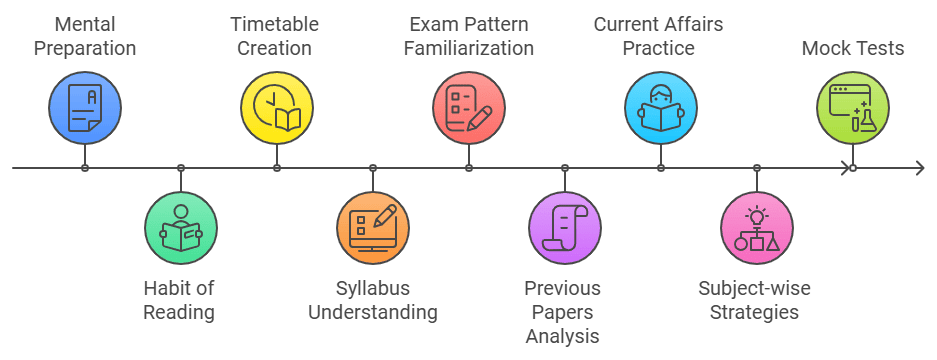
Step 0: What to do before you begin your CLAT Exam preparation?
Before you begin your journey to become a lawyer or get admitted to an esteemed law university like the NLUs, there are a few things you have to do so that you work in the right direction in order to achieve your dream.
- Prepare yourself mentally: Since CLAT is one of the most challenging exams in the country, you have to prepare yourself physically and mentally by setting effective goals.
- Inculcate the habit of reading: reading should be something you enjoy doing because the updated pattern of the CLAT contains comprehension-based questions that require the utmost reading practice. However, you are free to choose what to read and whatever makes you feel comfortable, including fiction, nonfiction, newspapers, and other things.
- Make your timetable: Because the CLAT exam is given shortly after the completion of the 12th board, students tend to concentrate more on their board exams than on their CLAT preparations. This mistake should not be made, and CLAT preparation should receive the same amount of attention as board preparation.
There are certain prerequisites that need to be fulfilled before you start preparing for the exam.
1. Understanding the syllabus: It is the basic and most important thing you should do to begin your preparation. The CLAT exam includes five subjects - English, Quantitative Techniques, Legal Reasoning, Logical Reasoning, and Current Affairs, including General Knowledge. The subject-wise weightage is as follows:

You can check out the detailed syllabus of the CLAT exam here.
2. Understanding the exam pattern: After you learn about the CLAT syllabus, it is also important for you to know the exam pattern just to get the hang of the CLAT exam. In recent changes made by the consortium, the number of questions has been reduced to 120 from 150. You can check the detailed exam pattern by clicking here.
Now you’re all set to begin your preparation!
Step 1: Understand the previous year's papers
Once you’re through with the syllabus and exam pattern, the next step would be to look at some previous year's question papers so as to understand what is actually being asked in the examination.

EduRev has compiled all the previous year's papers into one place. You can check them out here.
- You need to devote 2 to 4 weeks to analyzing the syllabus and PYQs alone. This will help you understand what CLAT is asking and what the demand is.
- However, ensure that recently consortium has made changes in the exam pattern of CLAT. Earlier, the number of questions being asked was 150, but now it has been reduced to 120.
- Also, more focus has been placed on comprehension-based questions instead of direct questions.
- When going through the previous year's questions you can also analyze which sections are important for you and which are not in your CLAT exam.
- Lastly, you can refer to them again as they are a good source of self-assessment in your CLAT preparation.
Almost all the top rankers whom we spoke to, spent over 2 weeks just analyzing the syllabus and previous year's question papers. But this helped them to save a considerable amount of time through their preparation journey, and they were successful in getting ranks as well.
Step 2: Read Newspapers Daily and Practice Current Affairs for the CLAT exam
To crack the CLAT exam, it is essential to have a good grasp of current affairs, as a significant portion of the exam focuses on this area. Current Affairs play an important role in cracking the CLAT exam. It is divided into 2 parts - static and current.

- Therefore, it becomes necessary to read the newspaper so as to stay updated on the current happenings in the country for your current gk portion. This will enhance both your general knowledge and reading comprehension, which is the most important and crucial component of the CLAT.
- Now, you might be thinking that reading the newspaper would be sufficient for current affairs, but this is incorrect. What matters is to retain all that information you read. To make it easy for you, EduRev has compiled all the daily, weekly, and monthly current affairs for your revision purpose.
- Spend a considerable amount of time on your static gk potion, as it is easy to cram. You can find detailed notes on topics like Science and Technology, Important Lists for India, World Knowledge, and much more at EduRev. Click here to access the complete course on general knowledge and current affairs.
- In addition to this, to enhance your static general knowledge portion, you should attempt daily quizzes available here and after the test, and check your all India rank (AIR) so as to boost your preparation.
- To check whether you are going in the right direction, giving tests is vital. You can get topic-wise current affairs and tests here.
- Along with that, EduRev has a comprehensive course on current events and general knowledge for you. All exam-relevant news is covered concisely in this course.
Step 3: Subject-wise preparation strategy for CLAT preparation
There is a tonne of information available, but not many questions are asked about each topic, so at EduRev we have looked into the average questions asked about each topic and prepared the content accordingly. While preparing for the CLAT, it is crucial to have the proper subject-wise approach and strategy because every section has a different approach.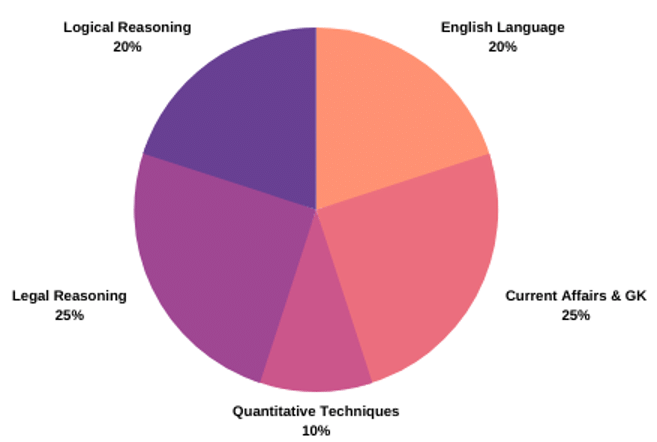
Refer to the subject-wise sections below to get a complete idea of how to ace individual subjects for the CLAT exam with EduRev:
Step 3.1: How to Prepare for Legal Reasoning?
CLAT's legal reasoning section is intended to capture a candidate's interest in law. It can be a tie-breaker section for you. Generally, 28-32 questions are asked from this section. You can prepare the legal reasoning perfectly and will score full marks with the fool-proof strategy provided below:
1. Adopt the habit of reading newspapers: It is very important for you to read the editorial section and all the important news articles, as this will not only serve as a good read but the information provided here will help you with your preparation for both the legal reasoning and current affairs sections.
2. Read about Important Supreme Court Judgements: Read about Important Supreme Court Judgements You should read about all the important judgements passed by the supreme court in the last year. Along with this, you should know all the new amendments and enactments passed in both the monsoon and winter sessions of parliament, in addition to contemporary issues, as this would improve the legal knowledge being asked in the exam.
3. Improve your legal vocabulary: You should have a strong legal vocabulary because the exam contains many questions about legal jargon, maxims, and foreign phrases.
4. Views of the author in comprehension: To get good marks on the passage-based question, it is important to consider the authors' points of view. This means you shouldn't mix the author's ideas with your own.
5. Practice Previous Year's Papers: This is an important part while preparing for the legal reasoning section as it will help you know the previous exam pattern and the type of questions being asked in the examination. Also, it will boost your confidence when you get the All India Ranking (AIR) for the test.
6. Solve Mock Tests: You must solve as many mock tests as you can as the exam is lengthy and to improve your speed and accuracy, it is necessary that you solve the mocks. Every topper says that mocks are the key to cracking this exam.
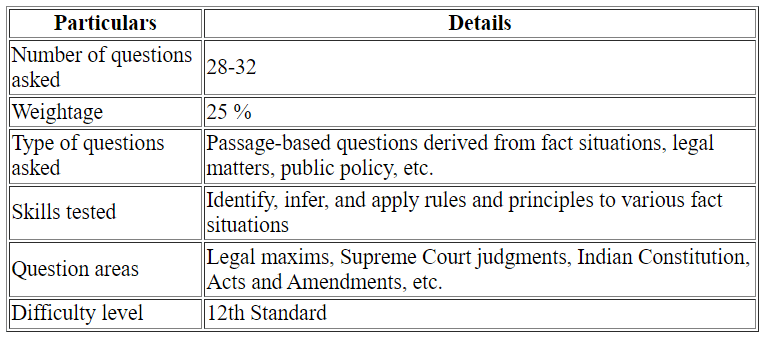
To learn more about How to Prepare for Legal Reasoning, click here.
Step 3.2: How to Prepare for English?
English is an important section of the CLAT examinations. This section comprises around 22-26 questions carrying one mark each. These questions require candidates to engage deeply with provided passages, demonstrating comprehension and language skills, the ability to draw inferences, and effective summarization. A detailed course for the English language is prepared by EduRev, you can check it here.
In the English section, you should focus on:
- Grammar rules and sentence improvements
- Comprehension practice daily
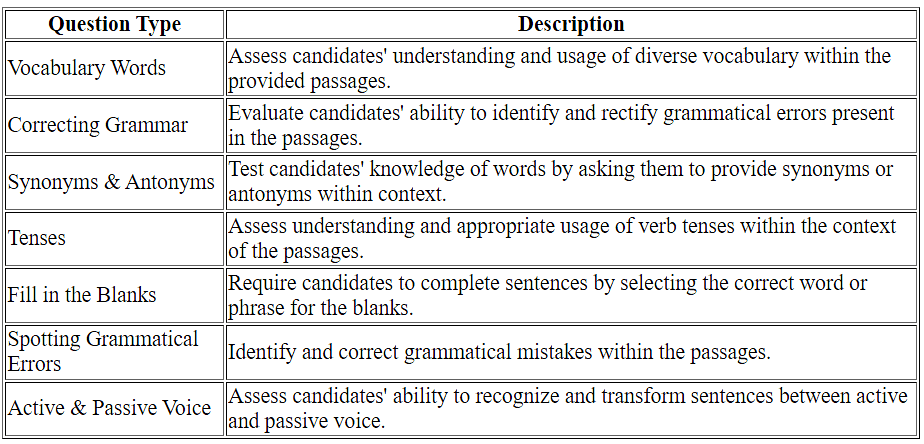
The candidate loses marks due to not having a good hold in the above section. But you don’t have to worry about it. You can easily score full marks in English just by following the below-mentioned points.
1. Make a habit of reading every day: As mentioned at the very beginning of this bible, make reading your habit as the examination is comprehension based and you should have good reading speed. While doing so, make sure you don’t indulge in reading something that you don’t enjoy.
2. Strengthen your grammar: This is one area where a lot of test takers lose marks. One prime reason for this is the difference between our spoken and written English. To avoid errors in this section, you must thoroughly go through the rules of grammar.
3. Analyze previous year's papers: Solving previous year's CLAT papers is very important as it will help you to know the type of questions being asked in the exam, the difficulty level of the paper, the marking scheme, etc.
4. Practice Sectional Mock tests: Taking up CLAT mock tests is also a very important part as it will help you improve your speed, accuracy, and time-management skills.
To learn more about how to prepare for English, click here.
Step 3.3: How to Prepare for General Knowledge?
It is more of a factual section. Either you know the answer or you don’t. There is no grey area between the lines. To ensure that you fully understand how to prepare for the GK section, here are some tips to prepare for GK & Current Affairs.
1. CLAT previous year’s papers: You should go through the previous year's papers to know the CLAT pattern followed and the questions being asked. This way, you'll know the areas covered and you can plan accordingly from there.
2. Reading newspapers is everything: Make sure you read newspapers on a regular basis so as to boost your reading skills and current affairs section. You should also inculcate the habit of writing down small points about important news, as you can revise them afterwards.
3. Know your strengths: Now, the next step for you is to identify the subjects or portions you are strong at or that are of your interest and start preparing them first and then slowly move to the areas that might be difficult for you, as this will boost your confidence and ease your burden.
4. Watch and Learn: You should make it a habit to watch national and international news in order to enhance your current affairs skills.
5. Attempt Daily Static Quiz: You should attempt Daily Static Quiz available on EduRev in order to enhance your current affairs skills and knowledge. This will help you to keep updated with the happenings around the world.
6. Practice with CLAT mock tests: You should test your knowledge in a realistic setting with CLAT mock tests. This will help you prepare several new topics/questions, which in turn will boost your confidence.
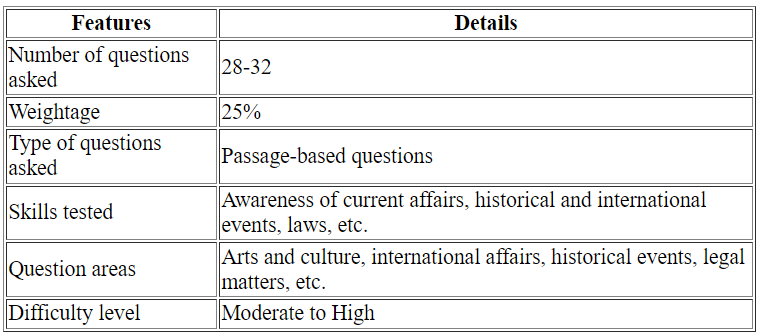
EduRev has compiled a series of mock tests for you in one place. You can attempt these tests here: CLAT Mock Test Series for CLAT
To learn more about how to prepare for general knowledge, click here.
Step 3.4: How to Prepare for Quantitative Techniques?
With around 10% weightage in CLAT Exam, the quantitative techniques section can prove to be a deciding factor for those aiming for law admissions at the prestigious National Law Universities (NLUs). You cannot afford to lose marks in this section. Here are some tips to prepare for Quantitative Techniques for CLAT.
1. Clear your basics: To attempt questions from the quantitative techniques section, it is extremely important for you to work on your basics, as you should have a good hold on basic topics like rational numbers, calculus, etc. to attempt the questions. If you feel that you do not have conceptual clarity on these topics, then you must refer to class 8 maths NCERT and clear your basics.
2. Regular practice: Regular practice is the key to success in the quantitative techniques section, as it will increase your speed and improve your accuracy. You should devote at least one to two hours daily to solving questions in Quant.
3. Practise Mock Tests and Previous Year’s Papers: Once you are done practising enough questions from each topic of quantitative techniques, then you should attempt previous years’ CLAT question papers and sample papers so as to know the pattern of the exam and the type of questions being asked in the examination. You are advised to particularly solve the CLAT 2024 question paper, CLAT 2023 question paper and CLAT 2022 question paper to get yourself acquainted with the new CLAT exam pattern.
4. Learn Shortcuts: When it comes to mathematics, learning shortcuts to solve questions and calculations becomes extremely important as you will be able to solve the questions much more quickly than before, thereby saving ample time to attempt other sections.
5. Focus on Accuracy: You must ensure that all the calculations you do in the exam are 100 percent accurate as there is a negative marking of 0.25 marks. Therefore, making silly calculation errors can cost you a lot.
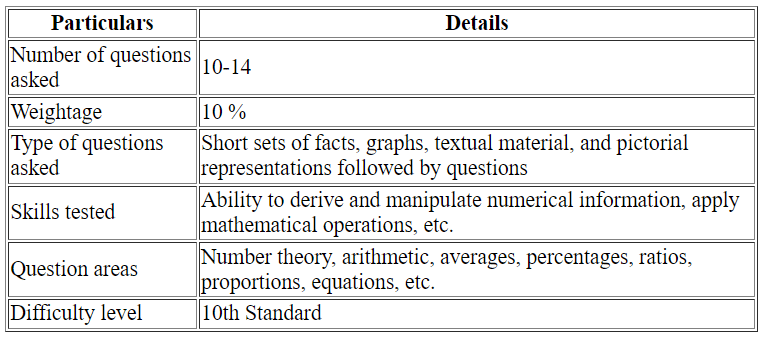
To learn more about how to prepare for quantitative techniques, click here.
Step 3.5: How to Prepare for Logical Reasoning?
This section simply focuses on evaluating the rational thinking of the candidate and how he/she can understand and solve the given situation rationally. Although the Logical Reasoning Section is tough for many, we've got a perfect strategy for you.
1. Have a well-thought preparation plan: You should devote at least one hour of your everyday time to the preparation of the logical reasoning section. Make a list of topics that you want to cover and set a deadline for yourself to finish the logical reasoning syllabus by that date.
2. Do not mug up; practice: While preparing for the CLAT logical reasoning section, do not mug up things. Rather than trying to understand the concepts and logic once you have understood the underlying concepts, practice the questions related to a particular topic as much as possible.
3. Learn shortcuts to solve questions: To solve logical reasoning questions quickly, it is important to learn certain shortcuts, as this would save you time by increasing your speed and accuracy.
4. Practice Previous Year's Papers: This is an important part while preparing for the logical reasoning section as it will help you know the previous exam pattern and the type of questions being asked in the examination.
5. Manage time: While attempting the CLAT papers, it is extremely important to keep a check on time. Managing time becomes even more important while solving logical reasoning questions, as questions in the section can sometimes be tricky and time-consuming.
6. Solve Sectional Mock Tests: You must solve as many mock tests as you can, as the exam is lengthy and to improve your speed and accuracy, it is necessary to solve the mocks. Every topper says that mocks are the key to cracking this exam.
7. Revision: Keep revising the concepts and topics you have already studied so that you do not lose your grip on them.
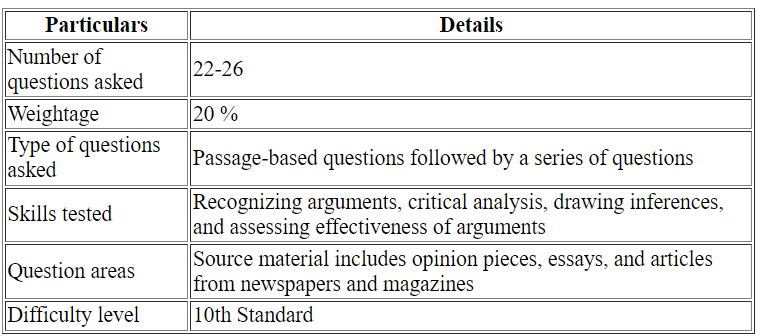
To learn more about how to prepare for logical reasoning, click here.
Step 4: Attempt Mock tests and Practice tests more frequently!
Attempting Mock Tests and Practice Tests frequently is an essential step in preparing for the CLAT exam. It is important to practice consistently and analyze one's performance to identify areas that need improvement.
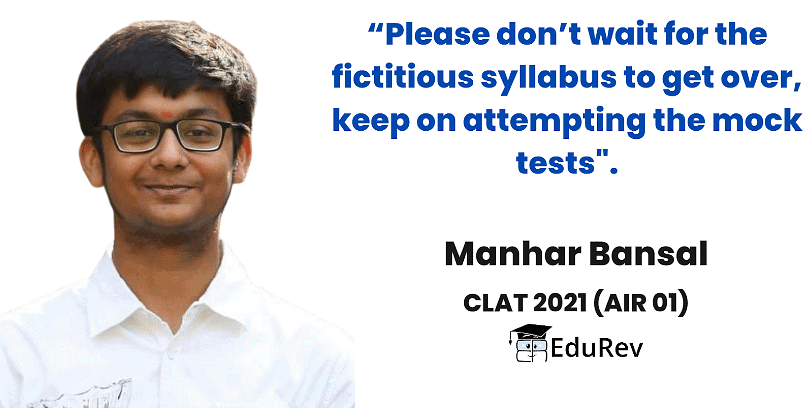
EduRev has compiled a complete course for your easy practice of Mock tests and Sample papers. Check it out here.
Giving practise tests is crucial for a number of reasons:
- Check your understanding: Giving topic-specific tests as you study a topic will help you determine whether you have understood the particular topic or not.
- Boosts confidence: practicing questions makes you confident and gives you an accurate picture of how much of the syllabus you have covered precisely.
- Time management: in the CLAT exam, managing time is the most vital task, and you can not overlook it. Practicing mock tests makes your time management skills stronger. You can practice mock tests on the EduRev platform by clicking here.
- Test analysis: you receive your All India Ranking (air) following each test (topic-wise/sectional/full mocks) on EduRev, which is very helpful in determining where you stand in the competition.
Step 5: Analyse your performance
Analysis of mock tests is absolutely necessary. Self-assessment is an essential part of CLAT preparation. For every wrong question, you have attempted to analyze the reasons behind the same. Try to find those topics on which you are repeatedly going wrong.

Go to your EduRev profile (analysis tab) to see your comprehensive macro analysis and see if there is a pattern in the mistakes that you make:
- Try to avoid silly mistakes
- Brushing up on the concepts that are your weak areas
- This will help you identify your strengths and weaknesses, and you can accordingly work on them
- Analyzing, and discussing the same is an important part.
- A mock test will help you in overcoming the anxiety and also help you to prepare well for the exam.
You can find the CLAT Mock Test Series here.
Step 6: Revise repeatedly to perform better in the CLAT exam.
Revision is a crucial step in preparing for the CLAT exam. It helps students to retain the information they have learned, identify their weaknesses, and improve their performance.
- Revise often before you start forgetting: Since the CLAT exam syllabus is varied, it is crucial to continuously revise before you start forgetting things.
- Complete the syllabus and revise: To get good grades, you should finish your first reading on each subject 9 months before the exam and your second reading five months before the exam.
- Revise 3-4 times: It's crucial to revise at least three to four times when it comes to current events and general knowledge in order to keep the events and things in mind.
- Revision is crucial: Revision is crucial because it is the only way to keep information in mind. It is useless to simply follow the syllabus without revising it.
You are almost there! You will achieve your goal!
Step 7: Standard Reference Books for CLAT preparation
Along with practicing mock tests and previous years' papers, it is also important that you follow some reference books so as to brush up your skills and speed. But remember, don’t follow more than 1-2 reference books as it will confuse you if you do so.
Here are some reference books as suggested by toppers!
1. For English: Word Power Made Easy by Norman, High School English Grammar, and Composition by Wren and Martin.
2. For Legal Reasoning: rs aggarwal, Legal Awareness and Legal Aptitude by AP Bhardwaj, and Lakshmi Kant for various topics related to polity like DPSP, fundamental rights, etc.
3. For Logical Reasoning: verbal and non-verbal reasoning by RS Aggarwal, analytical and logical reasoning by RS Aggarwal, and analytical reasoning by MK Pandey
4. For Quantitative Techniques: Quantitative aptitude by RS Aggarwal, Elementary Mathematics with Numerical Ability, Class 10th NCERT textbook
5. For General Knowledge: Lucent’s general knowledge, Pratiyogita Darpan, newspapers - the Hindu or Indian Express.
6. Reading newspapers is equally important for legal aptitude and general knowledge of current affairs.
Stay tuned! You are just one step away from achieving your goal!
Step 8: Believe in yourself and stay calm while giving the exam.
1. Strong determination: Without self-belief, you won’t be able to achieve your goal. Although the journey is difficult, if you have strong determination, you can easily crack the exam. You just need to get up from each failure and work towards achieving the goal.
2. Take care of yourself: Lastly, take care of yourself throughout the last month. Take breaks between your perpetual studying hours and go for a drive, play a sport, or get enough hours of sleep.
Frequently Asked Questions (FAQs) Related to the CLAT Exam:
Q.1. What is the CLAT exam?
The CLAT (Common Law Admission Test) is a national-level entrance exam conducted for admission to undergraduate and postgraduate law programs offered by participating National Law Universities (NLUs) and other law colleges in India.
Q.2. What is the exam pattern for CLAT?
The CLAT exam consists of 120 multiple-choice questions (MCQs) to be answered in 2 hours. The questions are asked from five sections, namely English Language, Current Affairs including General Knowledge, Legal Reasoning, Logical Reasoning, and Quantitative Techniques.
Q.3. What is the eligibility criteria for CLAT exam?
To be eligible for admission to the CLAT UG program, candidates must have qualified Class 12th or its equivalent from a recognized board. Additionally, candidates are required to secure a minimum of 45% marks to meet the eligibility criteria.
Q.4. What is the Age Limit for CLAT?
Candidates of any age can apply for the CLAT exam as there is no upper age limit for the same.
Q.5. How many times can one appear for CLAT?
Candidates can take CLAT as many times as they want. As of now, there is no limitation to appearing for the exam, but the candidates must meet the minimum eligibility requirement.
Additional Information
Check out these documents and prepare your strategy for CLAT accordingly:
- How To Prepare for English for CLAT
- How to Prepare General Knowledge for CLAT?
- How To Prepare for Logical Reasoning
- How to prepare Legal Aptitude for CLAT?
- How to Prepare for Quantitative Techniques
- What all do you get under EduRev Infinity for CLAT?
- How to Solve Multiple Choice Questions (MCQs) In the CLAT Examination?
- List of NLUs
|
1 videos|37 docs|71 tests
|
FAQs on CLAT Bible: 8 Steps to Ace your CLAT Exam with Ease! - CLAT Mock Test Series 2026
| 1. How can I start my preparation for the CLAT exam? |  |
| 2. Why is it important to understand previous year's CLAT papers? |  |
| 3. How should I incorporate current affairs into my CLAT preparation? |  |
| 4. What is the best strategy for preparing for the Legal Reasoning section? |  |
| 5. How can I improve my performance in the English section of the CLAT exam? |  |

















